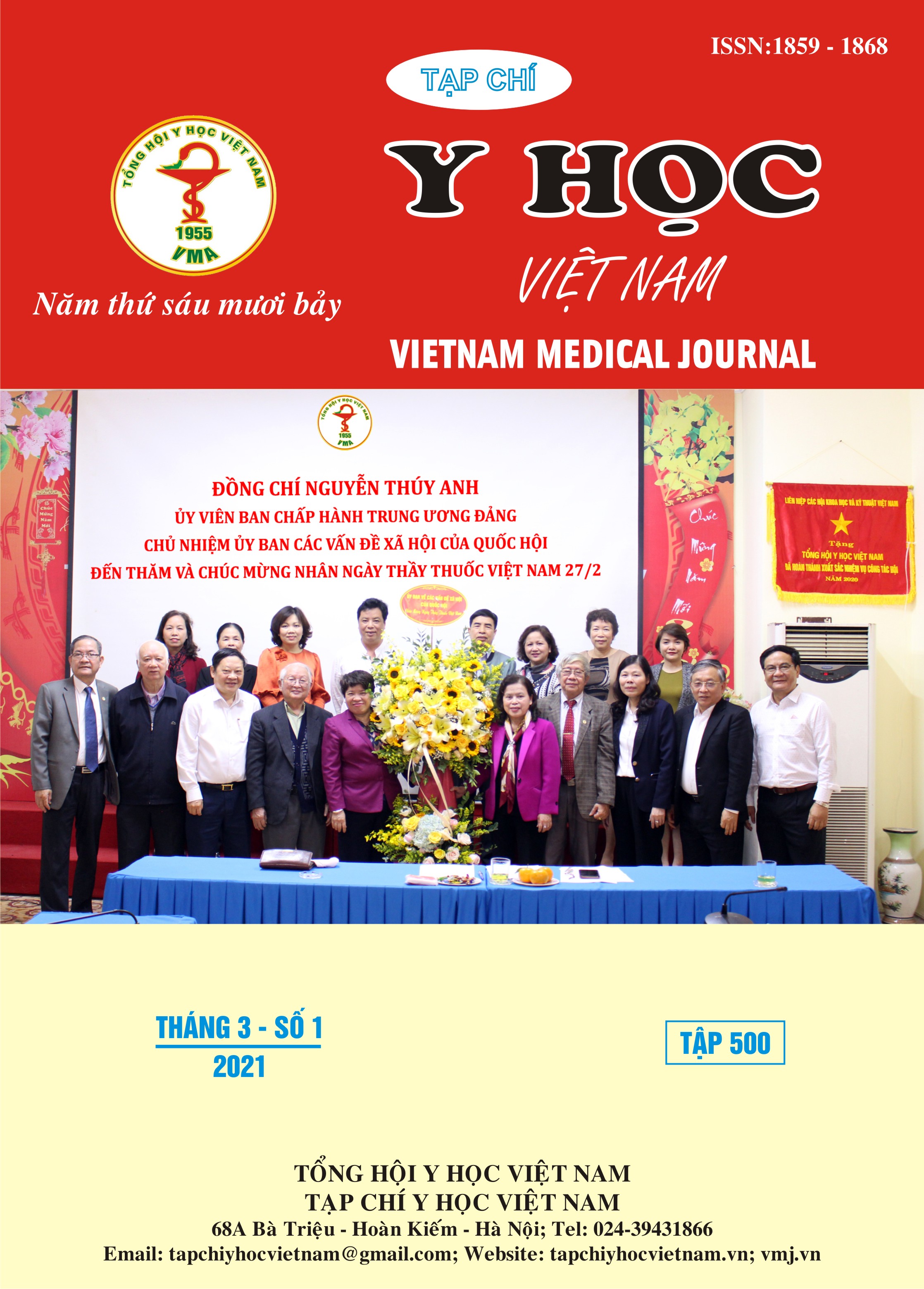ASSOCIATIONS BETWEEN OVERWEIGHT, OBESITY, AND NEW-ONSET DIABETES AFTER RENAL TRANSPLANTATION
Main Article Content
Abstract
Objectives: To study the ratio of overweight and obesity and the relationship with new-onset diabetes after three months of renal transplantation. Subjects and methods: ncluding 508 patients with kidney post-transplant more than three months who are followed up and treated at Viet Duc University Hospital from September 2017 to April 2018. All patients volunteered to participate in the study. Clinically examined, measured the height and weight of participants. Collect blood samples of recipients in the morning before eating and taking immunosuppressants. Carry out an oral glucose tolerance test (OGTT) when indicated. Diagnosis of overweight, obesity, pre-diabetes, and diabetes mellitus after kidney transplantation according to standards. Results: The overweight and obese group accounted for 30.12% of the study patients. The proportion of patients diagnosed with NODAT who were overweight and obese was statistically significantly higher than those who were not overweight and obese, p = 0.003. The risk of developing NODAT in overweight and obese patients is 2.13 (95%: 1.29-3.53) higher than in obese non-overweight and obese patients. Conclusion: This study shows that the incidence and risk of NODAT is more heightened in overweight and obese patients, so to avoid post-transplant failure and related complications, it seems reasonable to emphasize that those who are renal transplants should maintain an average weight.
Article Details
Keywords
overweight, obesity, new-onset diabetes after transplantation
References
2. Chakkera, H.A., Y. Kudva, and B. Kaplan, Calcineurin Inhibitors: Pharmacologic Mechanisms Impacting Both Insulin Resistance and Insulin Secretion Leading to Glucose Dysregulation and Diabetes Mellitus. Clin Pharmacol Ther, 2017. 101(1): p. 114-120.
3. Davidson, J., et al., New-onset diabetes after transplantation: 2003 International consensus guidelines. Proceedings of an international expert panel meeting. Barcelona, Spain, 19 February 2003. Transplantation, 2003. 75(10 Suppl): p. Ss3-24.
4. Kasiske, B.L., et al., Diabetes mellitus after kidney transplantation in the United States. Am J Transplant, 2003. 3(2): p. 178-85.
5. Rodrigo, E., et al., New-onset diabetes after kidney transplantation: risk factors. J Am Soc Nephrol, 2006. 17(12 Suppl 3): p. S291-5.
6. Bayes, B., et al., Obesity, adiponectin and inflammation as predictors of new-onset diabetes mellitus after kidney transplantation. Am J Transplant, 2007. 7(2): p. 416-22.
7. Ibernon, M., et al., Low serum mannose-binding lectin as a risk factor for new onset diabetes mellitus after renal transplantation. Transplantation, 2009. 88(2): p. 272-8.
8. Anuurad, E., et al., The New BMI Criteria for Asians by the Regional Office for the Western Pacific Region of WHO are Suitable for Screening of Overweight to Prevent Metabolic Syndrome in Elder Japanese Workers. Journal of Occupational Health, 2003. 45(6): p. 335-343.
9. Genuth, S., et al., Follow-up report on the diagnosis of diabetes mellitus. Diabetes Care, 2003. 26(11): p. 3160-7.


